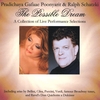by Ralph Schatzki
Music is one of the most important parts of our lives. Who has never sung, whether in the car or in the shower? Who has never tapped his fingers or feet along to the a rhythm of a song he heard on the radio? Tunes are stuck in our heads for hours sometimes despite our best efforts, and we hear music everywhere: from elevators to commercials to people humming on the street.
To call oneself specifically a musician, then, is to acknowledge not only that music plays an even more central part in one's life than the already extensive role it plays in everyone's, but that in doing so there is a pursuit of excellence that can be achieved only through both talent and diligence.
This cannot be overstated. Because nearly everyone- at one time or another, and sometimes even more often- engages in musical activities, it is often extraordinarily difficult for a professional musician to be taken seriously. After all, music is something we all do, so how can one person's musical activities be viewed so qualitatively differently?
There is also the fact that music, viewed as our birthright, is not something so arcane as to be valued in the same way as, say, a doctor's medical knowledge or an electrician's ability to repair faulty wiring. How can someone be paid to do something that we all understand- at least to some degree?
Most of society's professionals are able to command the fees they do, not simply because of the services they provide, but because they have put in those countless hours of work beforehand that enable them now to provide us with the best service money can buy. Yet, professional musicians put in no less time- in practicing, in rehearsing, in developing technique, in learning music- and still the perception so often is that their fees, if they are even lucky enough to be paid at all, are only for the performance itself: as if all that preparation is conveniently forgotten and the audience is simply amazed at the performer's “natural talent.” Now, there are extremely gifted musicians whose talents extend toward and beyond the prodigious; just as, I'm sure, there are medical prodigies and engineering prodigies. Most, though, just have an aptitude which is buoyed by years of training and hard work..
So, the next time we hear a great musical performance we should think about all the hours the musicians must have put in to make it happen: assign to it an hourly rate and see what kind of a deal we're getting. Above all, we must resist the urge of assuming that a professional musician is just like everyone else and that he needn't be paid. It's a lot of work to put on a good performance, just as it's a lot of work to be a good doctor.
Now, there's no question that in a strictly utilitarian sense music isn't as valuable as medical or electrical knowledge, but- remember those rhetorical questions at the beginning?- most would agree that it is indeed centrally important to our lives. Just because its value is not of the same kind, though, is no reason for it to be any less respected. I can put on a band-aid as well as the next person, but I still pay my doctor. We all can hum in the shower, but we should pay our musicians, too.








No comments:
Post a Comment